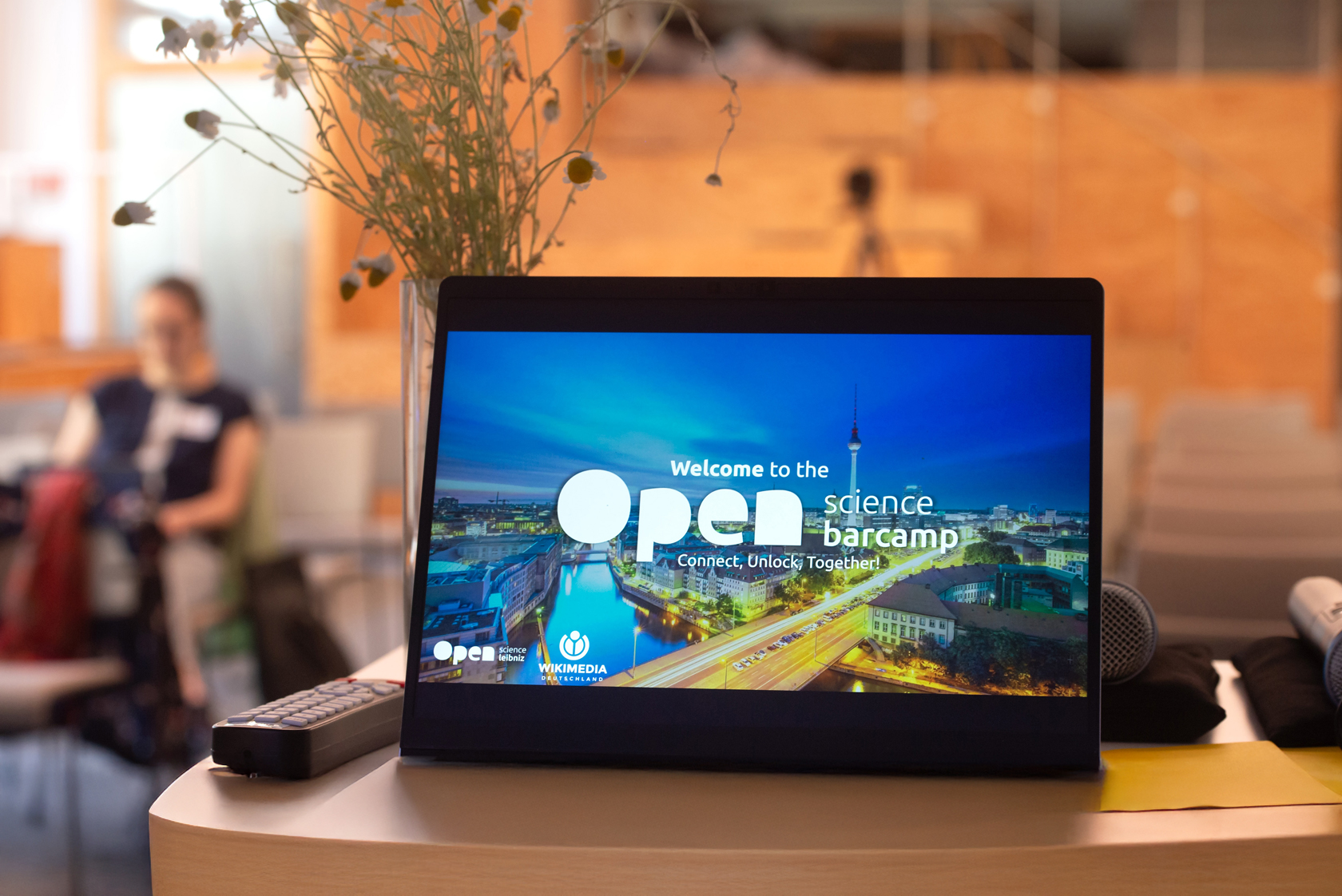
Promptathons: Potential for Libraries – and for Open Science?
Promptathons are a relatively new event format that can be used by libraries both internally and with the involvement of external parties. This blog post discusses ideas and opportunities for library work, the design of the format, and a possible connection to Open Science.
by Birgit Fingerle

Promptathons use the event format of hackathons (German language) for collaborative work with generative artificial intelligence. They are therefore a relatively new phenomenon. The world’s first „Prompt-a-thon“ (PDF, German language) took place in February 2023 at the University of Hamburg.
What is a promptathon?
A promptathon combines the intensive, time-limited way of working of a hackathon with the challenge of developing and optimising creative and effective prompts for generative AI systems. A prompt is an instruction for an artificial intelligence, especially for large language models (LLMs). Thus, guiding prompts through targeted inputs and optimising their responses to achieve the desired results is called prompt engineering.
Prompt engineering requires both a technical understanding of how AI models work and linguistic skills, as well as creative expression to refine the prompts. The aim is to formulate complex tasks in a way that is optimally processable for AI and delivers the desired results. In order to exploit the possibilities of large language models for solving given problems, participants often work together in interdisciplinary teams.
A promptathon usually lasts several hours or up to a whole day. Depending on the background and focus of the organisers, a specific goal or topic is set, which determines the tasks (‘challenges’) and thus what the prompts focus on.
Wide range of applications in libraries
Promptathons offer several advantages for libraries and other infrastructure and academic institutions. These include working on specific applications or research questions using the latest AI technologies while simultaneously developing methodological skills.
Promptathons could be used specifically for internal purposes, for example to build and expand skills or to optimise workflows. They can also stimulate exchange between different departments and professional groups in libraries.
Optimising library systems
Promptathons can be used to optimise or develop new library-specific (AI) systems. One example would be testing and improving conversational information systems within a promptathon. The aim of a promptathon could therefore be to comprehensively test an existing chatbot and identify areas for improvement.
Expanding presence and role as an information provider
Promptathons focused on specific topics, such as specialist areas, can help to strengthen the presence of libraries as innovative partners in the local academic and education landscape. They reposition the library as a place where new ways of dealing with information can also be tried out.
Regular thematic events aimed at different target groups are conceivable: from the general public and first-year students to specialised workshops for doctoral candidates and other researchers.
Promptathons enable libraries to expand their role as mediators of information literacy to include AI literacy. Library staff become a kind of coaches for the use of AI-supported research and analysis tools. They help to evaluate the quality of AI-generated content and teach critical media skills with regard to AI.
Potential for Open Science
Promptathons are also particularly interesting for science communication and citizen science projects. They can help make complex research results more accessible to the public or develop new formats for knowledge transfer.
Promptathons can also be used to address specific challenges related to Open Science. In the context of citizen science, for example, citizens could test how they can make scientific results more understandable for themselves and others. Or promptathons can be used to work out how AI can best be used to carry out tedious tasks associated with Open Science. This includes support in reproducing research results (if the methodology section is not clearly documented, or to find errors in the code) or in making data FAIR (for example, when generating metadata).
Challenges when conducting a promptathon
Organising promptathons presents libraries with certain challenges. For example, the technical infrastructure must be powerful enough to allow multiple teams to access AI tools simultaneously. Data protection and copyright issues also become more complex if external participants work with the library’s own data sets.
The skills of the library’s own employees are also crucial: some of them must have sufficient knowledge of prompt engineering to be able to provide meaningful advice during promptathons. This requires continuous training and a willingness to engage in experimental learning processes.
Ethical quality aspects also play an important role. For example, the question of how bias and distortions can be avoided in the prompts developed. Or the desire to ensure that the results meet the standards of scientific integrity. As trustworthy institutions, libraries have a special responsibility here.
Promptathons as a symbol of change?
If these challenges are dealt with appropriately, promptathons could serve as an example of the changing role of libraries as mediators of information (literacy) and innovative places of learning, which requires not only technical but above all creative and social innovation.
Networking between libraries or with other organisations could also be strengthened through joint promptathons, possibly in hybrid form across multiple locations.
Das könnte Sie auch interessieren:
- Guideline containing tips for holding a promptathon (PDF, German language) issued by Corporate Learning Community
- Hackathon in einer Bibliothek: Wie organisiere ich meinen ersten Hackathon erfolgreich (German language)
- Artificial Intelligence and Information Literacy: On the Art of Quartering Broccoli
- AI Inspirations for Libraries: From Study Bots to Conversations with Books
- Human-Centred AI: First Steps for the Enrichment of Library Work
Birgit Fingerle holds a diploma in economics and business administration and works at ZBW, among others, in the fields innovation management, open innovation, open science and currently in particular with the “Open Economics Guide”. Birgit Fingerle can also be found on LinkedIn.
Portrait, photographer: Northerncards©
View Comments

Barcamp Open Science 2025: From Threats to Collective Resilience
Safeguarding research and protecting knowledge infrastructures from political,...



